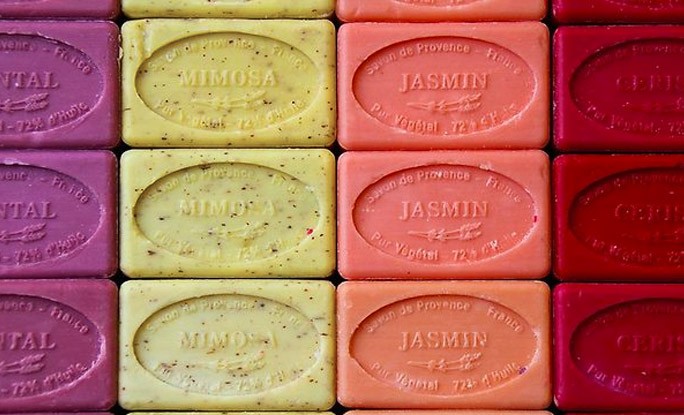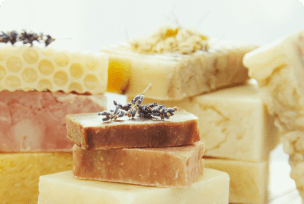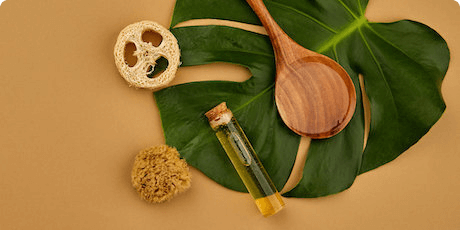
We’ve been making soap since 1856, it’s what we do. We get asked questions all the time, what is soap, what’s in a soap bar, is Soap bad? What’s a Syndet bar, what’s a Combo?
We thought a brief outline of soap bases and what they do might help to answer many of the questions we get asked. Soap is made by mixing an alkali (lye / caustic) with oil or fat in a process known as saponification. This is a chemical reaction… the triglyceride oils / fats are first hydrolysed into free fatty acids, these then combine with the alkali to form crude soap, or base soap this is a mix of various soap salts, excess fat or alkali, water, and liberated glycerol (glycerin) as this is broken off from the triglyceride during the reaction process.
The glycerin is a useful by-product from soap production, although can be left in the soap product as a softening agent, which is what we do at Stephenson, utilising the high Glycerin content for additional processing and performance benefits.
The fats or oils can range, so long as you have the correct ratio of hard to soft that enables the soap bar to physically form and set. This ratio can then be adjusted to give you a bar that lasts longer and doesn’t lather, or foam higher and dissolves quicker. The typical ratio is 80:20 with Palm (Hard 80) and Palm Kernel (Soft 20) We excel at adjusting and manipulating these ratios, creating speciality soap bases with innovative speciality oils and additives. We can use a vast array of oils in our soap manufacture, however, most suppliers will use a standard range of oils as seen below:
Vegetable Oils
- Palm Oil
- Palm Kernel Oil
- Coconut Oil
- Olive Oil
Vegetable Soap
Opaque vegetable origin, high glycerine soap, is sold globally. Manufactured using Vegetable Oils these soaps contain no synthetic ingredients of surfactants, they have a high pH and can in turn in some circumstances be drying on the skin. Vegetable soap tends to be more natural and contains no synthetic or chemical ingredients.
Vegetable soap bases can also be used by brands and retailers looking to market supply chain certification, such as Organic, Natural, Sustainable, Fairtrade as the soap is made using raw and natural oils, not surfactants. These soaps are typically referred to as ‘true’ and ‘traditional’ soap bars. We can tailor soap bar composition and performance by adjusting our fats and oils, we also introduce other additives such as Shea Butter, Argan Oil, Cocoa Butter and much more to give moisturise and cleanse the skin whilst washing.
What is a Syndet?
The word “syndet” is derived from “synthetic” combined with “detergent”. Technically it refers to the binding that occurs between different detergents, also called surfactants or tension-active agents. These detergents, which have an affinity for oils and repel water, surround dirt with small structures that are then removed by water.
From a technical viewpoint, syndets have other advantages over soap, such as the fact that they admit the possibility of using additives (colourants and fragrances) that are not suitable for soaps due to the high pH environment.
Soap vs. Syndet
Syndets are recommended for cleansing sensitive skin and even baby skin, as they are far more gentle and skin-friendly than traditional soaps. But remember that the anionic surfactants contained in syndets may cause sensitization problems in reactive skins. Nonetheless, even though syndets might prove to be a source of irritation for a small segment of the population, they are undoubtedly much more recommendable than traditional soaps.
Syndets in the market
Syndet bars are often marketed as “cleansing bars” or “dermatological bars” companies will use the term “soap free” or “soaps without soap.” this can cause confusion although in a sense are correct.
The vast majority of products available in the market today are syndets. Handmade Soap itself has been relegated to the traditional crafts sector – a memory of a time when cosmetics were not widely used and when people used the same soap for their bodies and their clothes often made in small batches at home. There is however popular demand for Natural soap (vegetable) where oils are used as people slowly move away from chemicals, chemical processes and the surfactants widely used in Syndet manufacture.
Syndet Bases
Syndet bars are made using blends of synthetic surfactants and formulated and produced differently than that of traditional vegetable soap bars. Syndet surfactants are derived from oils, fats, or petroleum products that are processed in a wide range of chemical processes other than traditional saponification. The production of syndet bars are known to be a complex process requiring special equipment, however, with ground-breaking innovative Syndopal base, the processing and production are simplified.
These synthetic surfactants make syndet bars the mildest personal cleansing bars, often pH neutral these soap bases produce cleansing and mild soap bars. The most famous and, in fact, the first combo syndet soap bar was Dove® - launched in 1955. Common ingredients found in syndet bars include:
- Sodium cocoyl isethionate (the most widely used)
- Sulfosuccinates
- Alpha oleficategoriess
- Alkyl glyceryl ether sulfonate
- Sodium cocoyl monoglyceride sulfate
- Betaines
Both the categories above now have a hybrid option for those customers not looking for 100% Traditional Soap or 100% Syndet, but a blend. This soap base is called a Combo Base used to create Combination Bars.
Combo Soap
Combination soap base is just as it sounds. A soap base made using a combination of different types of cleansers, surfactants, saponified oils designed to maximise cleaning while minimising irritation. These combo soap bars are commonly combinations of traditional vegetable soap and syndet bar base. By formulating in this way Combination bars are less irritating than Traditional Vegetable soaps, but less mild than syndet bars a balance of the two.
To sum up, here is listed some of Pros and Cons of Soap vs Syndet below:
Vegetable Soap
- Economical
- Vegetable Based
- Natural
- Organic
- Great Processing
- Oil Benefits
- High Glycerin
- Skin Additives – Shea, Cocoa
- High pH
- Drying on the Skin
- Poor Colour
Syndet
- High Foam
- Low Colour
- Wider range of additives (usually affected by pH enviroment)
- pH Neutral
- Less Irritation
- Synthetic / Chemical
- Processing Challenges
- Expensive
Stephenson Soap Bases
Here at Stephenson, we’ve always formulated, created and supplied traditional speciality soap bases, using vegetable oils. We can tailor oils ratios and also create combo bases for increased performance when and where requested. Soap is a challenging and confusing market, with a wide range of options and chemistry now being used, we continue to innovate and have recently launched a new syndet base, Syndopal for personal care manufacturers.
The soap base you need all depends on your manufacturing capability, costs, marketing and essentially what you believe. Whatever your choice we can guide and assist you with the supply of speciality soap bases.

























